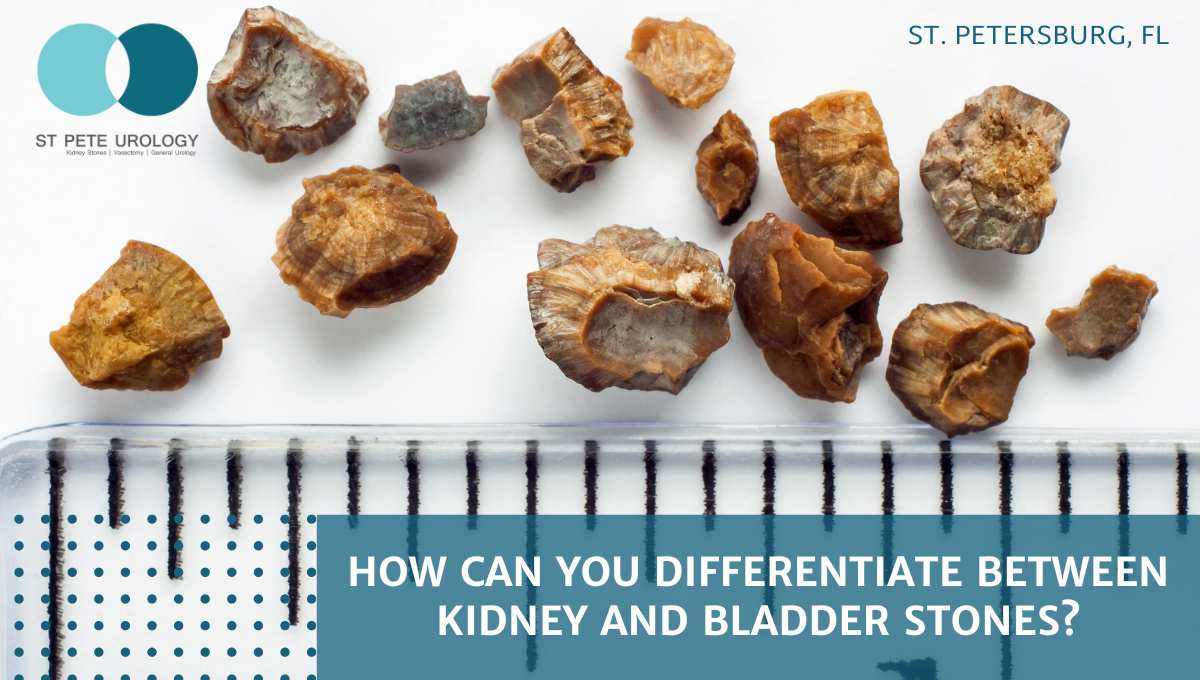Comprehending the Differences Between Kidney Stones vs UTI: Secret Signs and Treatments
Wiki Article
Exploring the Effects and Causes of Kidney Stones in Comparison to Urinary Tract Infections: A Detailed Overview
The expedition of kidney stones and urinary system system infections (UTIs) reveals a complicated interaction of signs and underlying causes that warrant careful exam. What are the key differences in their signs and symptoms, and exactly how might these educate therapy methods?Introduction of Kidney Stones
Kidney rocks, also known as kidney calculi, kind when particular substances in the urine crystallize and accumulation, resulting in the advancement of tough deposits within the kidneys. These rocks can vary in dimension, ranging from a grain of sand to a golf sphere, and can be composed of various products, one of the most typical being calcium oxalate, uric acid, struvite, and cystine. The formation of kidney stones is affected by numerous elements, consisting of dietary routines, fluid intake, and hereditary predisposition.Signs and symptoms of kidney stones might consist of extreme discomfort in the back or side, blood in the pee, queasiness, and constant urination, especially as the stone relocates through the urinary system tract. Medical diagnosis typically includes imaging research studies such as ultrasound or CT scans, along with urinalysis to identify the stone's structure.
Treatment alternatives vary based on the dimension and sort of rock, in addition to the extent of signs (Kidney Stones vs UTI). Little stones may pass normally with boosted liquid intake, while bigger stones may need medical interventions such as lithotripsy or surgical removal. Comprehending the pathophysiology and threat elements related to kidney stones is crucial for effective avoidance and administration
Overview of Urinary System Infections
Urinary tract infections (UTIs) are common microbial infections that impact any kind of part of the urinary system, consisting of the kidneys, ureters, bladder, and urethra. They mostly occur when microorganisms, frequently from the stomach tract, go into the urinary system, leading to swelling and infection.The prevalence of UTIs is especially higher in females than men, mostly because of physiological distinctions, such as a much shorter urethra. Threat variables consist of sex-related task, specific contraceptive techniques, urinary system retention, and dehydration. The diagnosis of UTIs is usually validated via urine tests, which may expose the existence of germs, leukocyte, or red blood cells.

Symptoms of Kidney Stones
The pain connected with kidney rocks can show up in various ways, typically leading people to look for medical interest. Among the most common signs and symptoms is severe pain, normally local in the reduced back or side, which may radiate to the abdominal area or groin. This discomfort, often described as sharp or cramping, can happen instantly and might rise and fall in intensity.Additionally, people might experience hematuria, or blood in the pee, which can vary from tiny total up to visible discoloration. This symptom may be accompanied by changes in urinary behaviors, such as enhanced frequency or seriousness, in addition to discomfort during peeing. Nausea or vomiting and vomiting are additionally prevalent, often resulting from the body's response to intense discomfort.
Sometimes, people may experience fever and cools, particularly if an additional infection creates due to the blockage caused by the stones. On the whole, the combination of serious discomfort, hematuria, altered urinary patterns, and intestinal signs and symptoms can offer considerable understanding into the existence of kidney rocks, necessitating prompt medical examination and treatment. Understanding these signs is vital for prompt medical diagnosis and effective administration of the problem.
Signs And Symptoms of Urinary System System Infections
Infections within the urinary system you could try these out system frequently provide a series of distinct signs and symptoms that can significantly impact day-to-day live. The most common signs include a consistent desire to urinate, commonly come with by a burning experience throughout peeing, called dysuria. People might likewise experience boosted regularity of peeing, creating little amounts of urine each time.Other notable symptoms consist of over cast or fetid pee, which might suggest the presence of bacteria or pus. Sometimes, pee might show up red or pink due to the presence of blood, a problem referred to as hematuria. Furthermore, individuals may experience pelvic pain or stress, which can even more intensify the sensation of necessity.
Systemic signs may also show up, such as fever, chills, and exhaustion, specifically Continue if the infection has ascended to the kidneys. It is important to recognize these signs and symptoms early, as neglected urinary system infections can lead to extra extreme issues. Kidney Stones vs UTI. Prompt clinical interest is advised when these signs and symptoms are observed, enabling appropriate analysis assessment and therapy to ease discomfort and protect against additional health problems
Sources Of Each Problem
Frequently, kidney stones and urinary system system infections arise from unique yet occasionally overlapping causes that can affect people in different ways. Dehydration, insufficient fluid consumption, and high-sodium diet regimens can exacerbate these conditions, promoting condensation within the urinary system system.
Understanding these distinct reasons is crucial for avoidance and therapy. Kidney Stones vs UTI. While way of life adjustments may mitigate the threat of kidney rocks, proper hygiene and prompt treatment of urinary system system infections are vital for decreasing their recurrence and linked difficulties
Final Thought
In recap, kidney stones and urinary system system infections existing distinctive symptoms and underlying causes. Kidney stones are identified by extreme discomfort and metabolic factors, while urinary system system infections mostly entail bacterial infections leading to urinary system urgency and pain.The expedition of kidney stones and urinary system system infections (UTIs) reveals an intricate interaction of signs and symptoms and underlying causes that call for cautious exam.Urinary tract infections (UTIs) are common microbial infections that influence any type of part of the urinary system, consisting of the kidneys, ureters, bladder, and the original source urethra.Regularly, kidney rocks and urinary system tract infections arise from distinct yet occasionally overlapping reasons that can affect people differently.In recap, kidney rocks and urinary tract infections existing unique signs and symptoms and underlying causes. Kidney rocks are defined by serious pain and metabolic aspects, while urinary system tract infections mostly include microbial infections leading to urinary system urgency and pain.
Report this wiki page